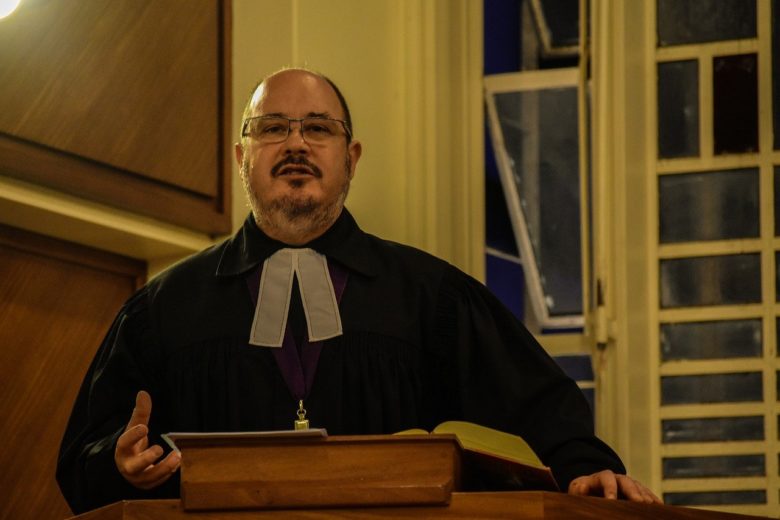“The call to preach the gospel” was highly esteemed in my childhood home. I come from a family of preachers and am grateful for my ministerial heritage.
I enjoy preaching, and some would say I’m decent at it.
As I grew more focused on Disciple Making Movements, I had to change how I work. My calling is to multiply disciple makers and catalyze movements among the yet to be reached millions on our planet. This requires I do more than preach to people. I must train disciples to be disciple makers. I need to train them until they are equipped enough that they can train others also.
It’s not been easy to put aside my preacher role. But that is what this vision demands.
Letting Go of the Perks
There are significant perks that come with being a preacher with a title. When I stood on a stage and hundreds (or thousands) of people listened to my words, I knew people were impacted by my message.
But did they become disciples who could make more disciples? It’s a tough question.
Most often my preaching did not result in disciples who could make disciples. I’ve motivated people through preaching, but I’ve not trained them to multiply.
When we elevate the man or woman of God on the stage, we unintentionally communicate that this is what Christians should aspire to. We must shift our focus. Let us instead uphold the ideal of equipping every disciple to make disciples.
Observing a Preacher On a Hot Summer Day
Driving through Nairobi one Sunday, I saw a preacher. He was standing behind a simple wooden pulpit under a tin roof. Four or five congregants gathered and were listening to him preach. He had no microphone but projected his voice loudly. The veins stood out on his neck. Sweat poured down his cheeks, and his shirt was soaked by perspiration.
Clearly his heart was in his task. In some ways, it was admirable. He was passionate and enthusiastic about his sermon. He waved his arms around, and paced back and forth.
As we drove on, and he slipped from my view, I felt sad.
Instead, of preaching to these few who had gathered, how much more fruitful might it have been if he sat and talked to them? What if he had spent time knowing them, reading scripture with them, and letting them share what they thought God was saying to them from the passage?
Rather than shouting his own thoughts, what if he listened to theirs? What if they practiced sharing a Bible story with one another? Until each person was confident that they knew it well enough to share it that week with their neighbors?
I would then have far more hope that those sitting in the chairs were on their way to becoming fruitful disciples who made disciples. Watching this brother preach, I was not at all sure they would experience the joy of being used by God as royal priests themselves.
Why Didn’t Jesus Preach More?
Jesus preached only a few sermons during His three years of ministry. It was not His primary way of communicating, nor of making disciples. Instead, he had conversations and told stories. He demonstrated the Kingdom with actions and trained his disciples through modeling a new way of living. He asked questions of them and others.
If Jesus only preached a few times in three years, why do we preach so often?
One of the primary reasons is that we misunderstand scripture’s exhortation to preach the good news. Webster’s definition of “preach” is different from what the New Testament Greek words translated preach mean. We read the word preach and think of it as someone speaking from a pulpit with no discussion or dialogue. This is a misinterpretation of the original intent of the Greek words translated this way.
The words translated preach, more accurately should be translated “widely proclaim,” “publicly announce,” or even “discuss.” When we read the word preach in the Bible, we should not think of the image of a person on a stage giving a sermon. That is not what preach means.
He said to them, “Go into all the world and preach the gospel to all creation.”
Mark 16:15 NIV.
In this commission, was Jesus meaning we should all learn how to craft three-point sermons and stand up on stages to deliver them?
No! He meant we should widely announce His incredible good news of salvation to everyone, everywhere.
The incredible message of Christ’s transforming love must be communicated through His people…His witnesses. Acts 1:8 says, “And you will be my witnesses, telling people about me everywhere—in Jerusalem, throughout Judea, in Samaria, and to the ends of the earth.” New Living Translation.
Pastors, missionaries, preachers…how can you equip others to disciple and be effective witnesses to those around them?
Does our preaching do that? If not, maybe we should preach less and train more.
Reflection Questions for Preachers:
- How could I shift my “preaching ministry” to a more participatory style of adult learning?
- What if I made it my goal to pass on to those who listen, something they could immediately pass on to someone else that week? (2 Tim. 2:2).
- Are there ways I could elevate the value of disciple makers in my church, and tone down the prestige given to those with a pulpit ministry?
- If I did these things, what impact might it have on the fruitfulness of those who attend my church?
I’m Not Against Preaching, I’m For Disciple Making
I am not anti-preaching. Listening to Sunday sermons enriches my spiritual life. I’m blessed by the preachers who invest time and effort into quality sermon preparation. The purpose of this article is not to put down preachers or those with a preaching ministry.
My hope, however, is that if you are a preacher, you might consider some changes. I’d like you to consider modeling your ministry on Jesus and not the biggest mega-church in your area.
If we want to release rapidly growing Disciple Making Movements, we will have to embrace radical changes in the way we do church. We can’t keep doing things the way we always have and expect to see different results. Preaching less and equipping disciple makers more, is one thing we will need to change in our ministry model if a DMM is our aim.
What do you agree with in the article above? What are you not sure about? Is there any action step you want to take to ponder or implement this further?
Let me know in the comments below or on the DMMs Frontier Missions Facebook group.




Comments
Ready to go Mission in Southeast Asia
Yes. I agree with you.
Only in Sabbath Day Jesus gave exhortation/sermon. He took the Scripture and read from it and also ask questions to the devotees/congregation.
If we look to Apostle Peter and Paul, How dose they preach?
They went to peoples home/public places/in their rented home.
In a small group preaching is best way. One to one or few more.
Where we can give full attention to the participants, create an good learning environment and see their reactions and reflections.
God created us for His ministry and He commissioned us to go and make disciples in all the world that His name may be worshipped and training will do it better than preaching
this article made me realize to preach less and disciple more. Thank you Lord